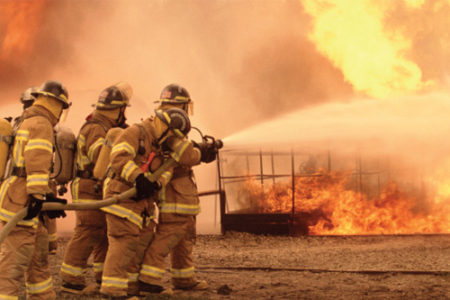Live Classes

The devastating fires, at a gaming centre in Rajkot, Gujarat and a newborn nursing clinic in Delhi within 24 hours of each other, which left over 30 dead, is another grim reminder of one of India’s insidious threats: the pervasive nature of the negligence of the fire safety of buildings by a whole range of stakeholders — from builders and proprietors to regulatory authorities. While the Bureau of Indian Standards has set detailed fire safety protocols in its National Building Code of India (NBC) 2016, it is a recommendatory document, as fire services is a State subject, and enforced at the municipality level. The sheer disregard for India’s fire safety norms is apparent from the opening lines in the ‘About Fire Service – Background’ page of the Director General, Fire Services website under the Ministry of Home Affairs. It reads, “The fire services are not well organized in India”, adding, “in recent years the requirements for fire safety cover have increased manifold whereas the development of fire service has not made much headway”.
The National Disaster Management Authority had recommended to the 13th Finance Commission, an allocation of ?7,000 crore to revamp India’s fire and emergency services. But the Commission sought an allocation of almost ?90,000 crore at the municipality level, recognising the need for a tailor-made revamping and restructuring of fire and emergency preparedness. A 2019 Home Ministry response to the Rajya Sabha noted that India had only 3,377 fire stations, when a 2012 national report on fire hazards and risk analysis sought more than double that number. The staff shortage is even more appalling. The entire country had only about 55,000 fire servicemen in 2019, when the requirement was about 5,60,000 seven years earlier. The Centre belatedly set aside ?5,000 crore last July asking States to cough up another ?1,400 crore to modernise emergency services. This follows the 15th Finance Commission’s advice to set aside 12.5% of all allocations towards the National/State Disaster Response Funds. With rising heatwaves and extreme weather events nationwide, it is clear that a synchronisation of the 2016 NBC and the Energy Conservation Building Code is required to attempt a holistic approach to address fires, as standards for construction material, electrical wiring, air-conditioning, and a whole range of cooling materials have to be revamped. More importantly, India’s polity, bureaucracy, policymakers and entrepreneurs must urgently address this insidious threat.
Download pdf to Read More